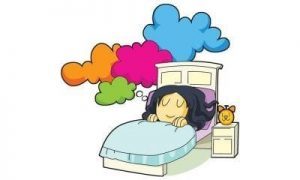
25 Jan Why do we Dream
Why do we Dream
Have you ever wondered why we dream or tried to understand what a dream content represents? We all dream, although we often don’t remember our dreams.
Sometimes dreams seem so real and meaningful when we are experiencing them, but mostly they are forgotten. And when we do manage to remember them, they often seem weird.
Dreaming is essential for good mental health and plays a central role in keeping us sane.
It is nature’s solution to the problems that emotions cause us.
The function of dreams is to process undischarged emotions from the previous day.
The undischarged emotions are acted out in ways that symbolise the emotions that they represent, as opposed to the dream being explicit. For example, if undischarged emotion arises from stress at work, due to circumstances relating to a threat of redundancy, your dreams might be about armies or warfare as opposed to explicit details of your working environment. And if we have happy positive emotions, we have happy dreams. So nature’s way of helping us to process these unexpressed emotions is in our dream sleep. Most people have some negative emotions arising from concerns of the previous day, but if a person is continually worrying, the dreaming process becomes over-loaded with the amount of negative emotions and then the sleep balance is disturbed and dreams are miserable and even nightmares. If this continues it can affect mental health and conditions such as depression can set in. In the case of very extreme stress overload psychotic symptoms may occur.